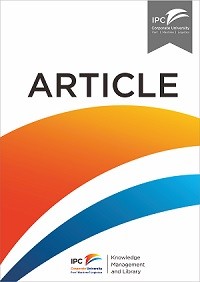Article
Firm-level Factor versus National Institutional Difference
When a firm undertakes foreign direct investment, it must determine the level of ownership in its foreign subsidiary. This study examines the determinants of the ownership strategy of a Japanese logistics firm from the perspective of
international business studies (IB). The study focuses on firm-level factors, including “contributed assets” for shaping firm-specific advantage which a parent firm possesses, “complementary assets” which such firm may need to acquire in a foreign country, and international experience. It also analyzes country-level factors including the institutional difference between a home country and a host country. The study conducts a Tobit regression analysis on the relationship between such factors and the equity ownership level in a foreign subsidiary based on the data-sets of Japanese logistics firms.
Ketersediaan
Informasi Detail
- Judul Seri
-
Firm-level Factor versus National Institutional Difference: Ownership Structure in a Foreign Subsidiary of a Japanese Logistics Firm
- No. Panggil
-
ATC LO END f C.1
- Penerbit
- JEPANG : ., 2014
- Deskripsi Fisik
-
14 p .
- Bahasa
-
English
- ISBN/ISSN
-
-
- Klasifikasi
-
LO
- Tipe Isi
-
-
- Tipe Media
-
-
- Tipe Pembawa
-
online resource
- Edisi
-
Volume 30 Number 3 December 2014 pp. 393-414
- Subjek
- Info Detail Spesifik
-
-
- Pernyataan Tanggungjawab
-
Nobuaki ENDO
Versi lain/terkait
| Judul | Edisi | Bahasa |
|---|---|---|
| The Impact of Effective Human Resources Training on Employee Performance in a Port Organizational Structure | en | |
| Design and construction of port and marine structures | en |
Lampiran Berkas
Komentar
Anda harus masuk sebelum memberikan komentar

 Karya Umum
Karya Umum  Filsafat
Filsafat  Agama
Agama  Ilmu-ilmu Sosial
Ilmu-ilmu Sosial  Bahasa
Bahasa  Ilmu-ilmu Murni
Ilmu-ilmu Murni  Ilmu-ilmu Terapan
Ilmu-ilmu Terapan  Kesenian, Hiburan, dan Olahraga
Kesenian, Hiburan, dan Olahraga  Kesusastraan
Kesusastraan  Geografi dan Sejarah
Geografi dan Sejarah